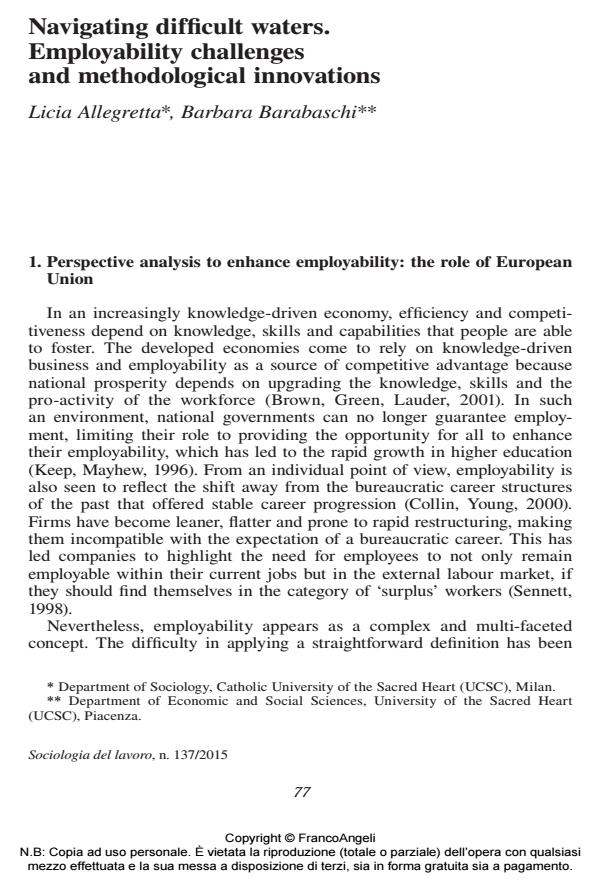Navigating difficult waters. Employability challenges and methodological innovations
Journal title SOCIOLOGIA DEL LAVORO
Author/s Licia Allegretta, Barbara Barabaschi
Publishing Year 2015 Issue 2015/137
Language English Pages 15 P. 77-91 File size 130 KB
DOI 10.3280/SL2015-137005
DOI is like a bar code for intellectual property: to have more infomation
click here
Below, you can see the article first page
If you want to buy this article in PDF format, you can do it, following the instructions to buy download credits

FrancoAngeli is member of Publishers International Linking Association, Inc (PILA), a not-for-profit association which run the CrossRef service enabling links to and from online scholarly content.
The paper presents the tools elaborated by European Union experts to make people employable in the context of global crisis and labour market’s needs transformation. The paper moves on two levels: the first, that of firms, presents results of some studies on the demand of competences in the short run in the services sector and, specifically, in that of green economy. The second level, that of individuals, presents some new tools aiming to support workers to evaluate the skill gap (O*Net Interest Profiler, O*Net Ability Profiler, O*Net Work Importance Profiler) and undertake the right actions to become employable. Results highlight the limited efficiency of innovative digital tools, if they are not founded on systemic integration and social inclusion.
Keywords: Employability, social dialogue, skill gap, job vacancies, green jobs, Information Communication Technologies
Licia Allegretta, Barbara Barabaschi, Navigating difficult waters. Employability challenges and methodological innovations in "SOCIOLOGIA DEL LAVORO " 137/2015, pp 77-91, DOI: 10.3280/SL2015-137005